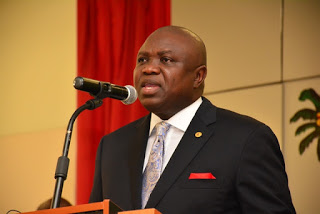Lagos State Bans Live Bands In Restaurants Due To Noise Pollution
In a bid to address the worrisome level of noise pollution in Lagos State, the Governor Akinwunmi Ambode administration has banned the use of live bands in restaurants and beer parlours in the state.
A fine of N500,000 is to be imposed on anyone or organisation found violating the ban.
The state government similarly warned religious houses to procure sound proof in order to minimise the effect of noise generated on their neighbouring residents.
General manager of the Lagos State Environmental Protection Agency (LASEPA), Adebola Shabi, said the decision of the state government was influenced by the increasing rate of petitions by residents, who were lamenting the frequent disturbance from beer parlours, club houses and religious houses.
Shabi equally lamented that Lagos state residents were unknowingly consuming poisonous water through underground sources and warned the petrol stations in the state to install monitoring well in their filling stations or face serious sanctions.
Noise pollution has always been an issue in Lagos state with successive administrations threatening to impose sanctions on offenders.
The government has at different times banned religious houses from mounting external speakers on their structures but the practice has remained in many parts of the state.
As part of an awareness campaign to reduce noise pollution in Lagos, former governor, Mr Babatunde Fashola introduced a ‘horn free day’ – a day motorists were urged not to use their horns while driving. The 2015 edition recorded an appreciable level of success but a second edition is yet to hold since then.
With the new rule against having live bands in restaurants and beer parlours, residents of buildings situated next to such places may begin to heave sighs of relief and be better able to sleep at night, undisturbed by revelry in which they are non-participants.
As with similar attempts to tackle noise pollution in times past, the strength of the rule will lie in its enforcement which however is usually the missing piece of the puzzle.
Religious organisations often get away with infractions of such rules by accusing government officials of having an agenda against God and in a deeply religious social construct where ‘men of God’ often double as custodians of mass thinking, government officials are more likely to play safe to avoid negative sentiments that could result in electoral defeat.
Time will tell how well the new rule as reported by PM News will fare.

